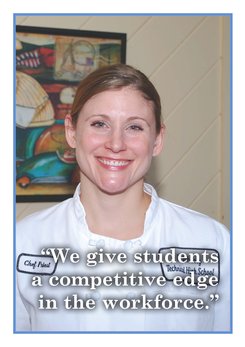Community Schools — The Heart of a Neighborhood
While good teaching is crucial to student learning, there are factors in every child’s life that are beyond the teacher’s control and may deeply affect the child’s ability to perform well in school. In fact, decades of research have shown that out-of-school factors account for up to two-thirds of student achievement results. Sadly, there are more impediments to learning in the lives of poor children than there are in the lives of children from more advantaged circumstances. If we are to close the achievement gap, we must address the factors that impede learning.
The most effective solution is to provide services right in the school. Schools and districts can coordinate with local providers—medical providers, Boys and Girls Clubs, and other nonprofits, for example—to provide services where students and families can readily access them.
Community schools typically are open beyond regular school hours to provide access to tutoring, homework assistance and recreational activities, as well as medical, dental and mental health services. Families and other community residents also may benefit from legal advice, immigration assistance, employment counseling, housing help and English-language or GED instruction, depending on needs. These services can alleviate family stresses that can interfere with children’s schooling.
Community schools have been supported by numerous AFT affiliates, including the successful programs in Hartford and Syracuse, N.Y., where Say Yes to Education, a nonprofit foundation, links students and their families to needed services. In Cincinnati, Community Learning Centers provide access to health and social services, as well as enrichment, tutoring and adult education programs. Among the benefits have been higher student test scores, and better attendance and parent involvement rates.
AFT CT (American Federation of Teachers Connecticut) is committed to improving the quality of education for every child in the state. Education reform issues like teacher tenure, teacher certification, teacher evaluations, early childhood education, charter schools, school funding and more need input from all educators. PreK-12 teachers, paraprofessionals and school related personnel are working every day to improve learning and help students to grow. From urban schools in Connecticut, such as Hartford, New Britain, New Haven and Meriden, to suburban schools, such as, Bloomfield, Simsbury and Waterford, to regional school districts, our members are working to provide quality education.




